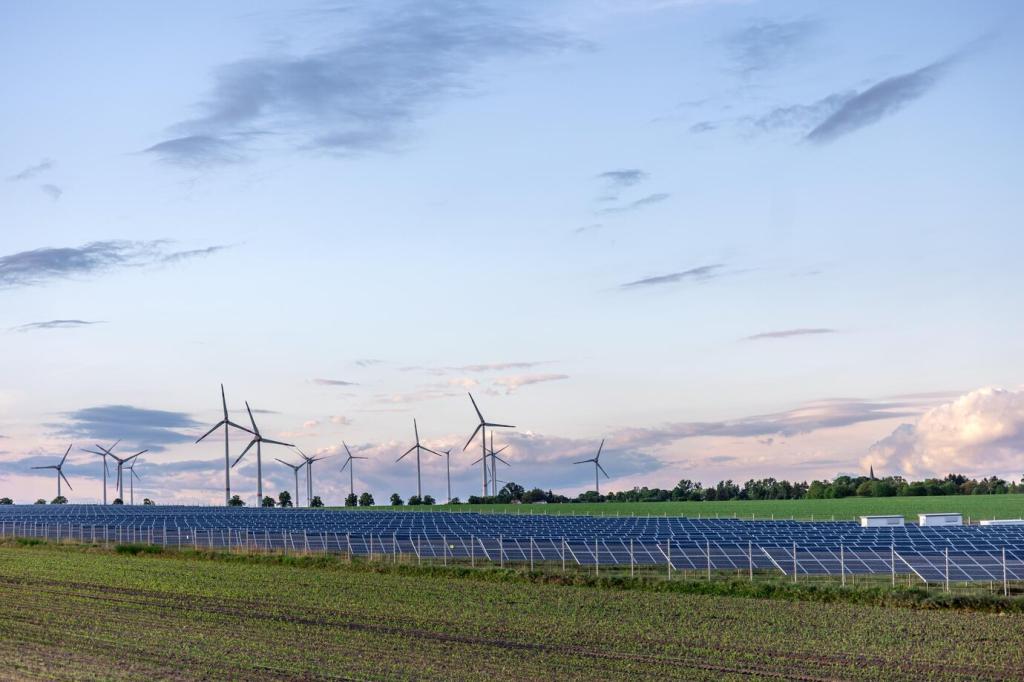Next-generation biofuels represent a transformative approach to sustainable energy, moving beyond the limitations of conventional biofuels to offer cleaner, more efficient solutions for global power needs. By harnessing advanced technologies and novel feedstocks, these innovative fuels have the potential to revolutionize transportation, industry, and energy generation. With urgent environmental concerns and a relentless demand for renewable alternatives, next-generation biofuel applications are stepping to the forefront of the green energy transition, promising significant reductions in carbon emissions and greater energy security.
Advanced Feedstocks Transforming Biofuel Production
01
Algae-Based Innovations
Algae stands out among advanced biofuel feedstocks due to its exceptional ability to convert sunlight and carbon dioxide into energy-dense oils. Unlike traditional crops, algae can be cultivated in saltwater or wastewater, reducing competition with food resources and relying on underutilized lands. Innovations in genetic engineering and photobioreactor design are further boosting yields and energy returns. With the potential for year-round harvests and rapid growth rates, algae may soon provide a steady source of sustainable fuel, while simultaneously capturing atmospheric carbon and reducing greenhouse gas emissions.
02
Agricultural Residue Utilization
Transforming agricultural residues—such as straw, husks, and stalks—into next-generation biofuels addresses two problems at once: waste management and renewable energy production. These materials, often left to decompose or burned, release significant amounts of greenhouse gases. Advanced biochemical and thermochemical processes are now capable of converting this cellulose-rich biomass into liquid fuels or biogas, supporting rural economies and decreasing reliance on fossil fuels. This approach mitigates the food-versus-fuel debate by foregoing the use of staple crops and capitalizing on existing agricultural byproducts.
03
Industrial Waste Streams as Resources
The valorization of industrial waste streams has emerged as a game-changing strategy in next-generation biofuel production. Wastes from food processing, paper manufacturing, and even breweries serve as inexpensive, readily available feedstocks for bioconversion. Harnessing these materials not only diverts organic waste from landfills but also results in the sustainable production of advanced fuels. Innovative microbial and catalytic technologies are constantly being developed to optimize these conversions, turning what was once a costly disposal problem into an environmentally and economically advantageous solution.
Decarbonizing Transportation with Advanced Biofuels
Sustainable Aviation Fuel (SAF) Progress
Aviation poses unique challenges for decarbonization due to the energy density required for long-haul flights. Next-generation biofuels, particularly sustainable aviation fuels produced from non-food biomass, algae, or waste oils, are addressing this gap. These fuels can be blended seamlessly with conventional jet fuels, reducing lifecycle emissions without necessitating new aircraft designs. Continued advancements have led to successful commercial flights operating partially or fully on SAF, signaling a viable path forward for greener air travel and boosting industry confidence in the future scalability of these solutions.

Biofuel-Powered Distributed Generation
Distributed generation systems utilizing advanced biofuels create opportunities for localized, resilient energy supply. Microgrids and small-scale power plants can be fuelled by bio-oils or biogases produced from regional waste or dedicated energy crops. These systems provide flexible, reliable electricity that can support remote communities, critical infrastructure, or urban districts seeking to reduce dependence on centralized fossil-fuel power. The decentralization of energy resources fosters energy democracy and can accelerate the adoption of renewables in regions underserved by traditional power networks.
Industrial Heat and Co-Generation
Industries with high thermal energy requirements, such as cement, steel, or pulp and paper, are increasingly integrating next-generation biofuels into their operations. By substituting fossil fuels with bio-syngas, biodiesel, or advanced alcohols, these facilities can dramatically reduce their carbon footprint. Co-generation systems, or combined heat and power (CHP) plants, further enhance efficiency by utilizing both the electricity and excess heat produced from biofuels. This holistic approach supports industrial decarbonization targets while maintaining the competitiveness and reliability necessary for large-scale manufacturing processes.
